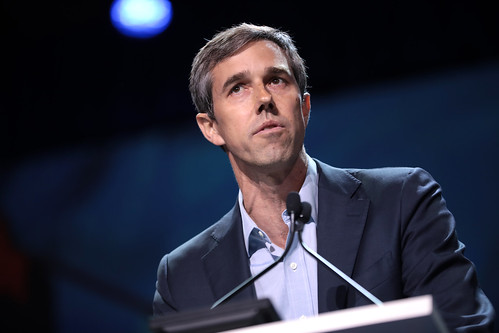
Presidential debates are game-changers: the bright lights of network television, the intense questioning from the moderators, and the searing attacks from other candidates can melt and destroy even the most polished politicians.
Candidates such as Rick Perry have gone from frontrunner status to an afterthought in a matter of days. Even world class orators Ronald Reagan and Barack Obama suffered embarrassing losses in the first debates of their reelection campaign.
The Democratic primary debates revealed a party torn between nominating the most electable candidate or embracing firebrand progressivism. Rather than providing clarity in who will emerge as the eventual nominee, these debates have exposed an emerging dichotomy between the Establishment and the new Democratic-Socialist bloc.
The implications of this divide could prove devastating for Democrats in November. Even with a majority of Americans disapproving of Donald Trump’s performance as president and even backing his removal from office, a shattered and unenthused Democratic base could spell doom for the eventual nominee. A repeat of the 2016 primary debacle, where disgruntled Bernie Sanders supporters nearly hijacked the convention and stayed home in November, would almost certainly sweep Trump to reelection.
Former Vice President Joe Biden has been repeatedly pilloried for refusing to back Medicare-for-All, the Obama-era deportations of undocumented immigrants, and his legislative record. Senators Elizabeth Warren, D-Mass., and Bernie Sanders, D-Vt., face ridicule from more moderate candidates for the impracticality of their proposals.
There are two obvious losers that suffered the most from the debates: Beto O’Rourke, D-Texas, who earlier this week announced he will be ending his campaign, and Sen. Kamala Harris, D-Calif.. Both entered this year with a great deal of excitement surrounding their candidacies. From the moment the debates began, however, public perception shifted for each of them.
Once garnering comparisons to Bobby Kennedy, Beto O’Rourke instead came across in the debates as a dull hipster who would be more suited as the president of a Pink Floyd fan club than the commander in chief of the United States. Kamala Harris, meanwhile, was eviscerated in the second debate when Tulsi Gabbard ripped to shreds the former California attorney general’s prosecutorial record.
Clearly, O’Rourke and Harris suffered the most from the debates. And while the rest of the field has not seen their stock fall as sharply, the debates have not boded well for the standing for most other candidates.
Biden began his campaign polling as high as 41%. After a string of mediocre performances, he’s struggling to stay above 25%. He has fallen as low as fourth place in surveys of Iowa voters, an embarrassing crash in support in an important caucus.
Meanwhile, Warren’s performance in the most recent debate in Ohio exposed glaring weaknesses in her Medicare-for-All plan and tax proposals. Sanders is struggling to recapture the energy of his 2016 campaign; no longer the belle of the progressive ball. Further back in the field, Amy Klobuchar, D-Minn., and former Secretary of Housing and Urban Development Julian Castro continuously fail to differentiate themselves from the field.
The only candidate who has consistently performed well in the spotlight is Pete Buttigieg, mayor of South Bend, Indiana. From the beginning of the campaign, Buttigieg demonstrated exceptional skills as an orator and debater. He remains handicapped, however, by his lack of executive experience, having merely served as a small-town mayor, and a lack of popular support in the black community. Furthermore, while Buttigieg’s recent tack to the center may help him with the broader electorate and disenchanted Biden supporters, it will undoubtedly raise the eyebrows of progressives within his party.
Debates are designed to assist voters in determining the best possible candidate. Yet all these early debates have done is soil a field nearly thirty-deep.
Once perceived as the best challenger for Trump, Biden now looks like a washed-up relief pitcher trying to start Game 7 of the World Series.
After nine months of successfully marketing herself as the underdog candidate with a plan for everything, Warren is struggling to operate as a frontrunner and respond to criticism of her tax plan. And despite campaigning proudly as a champion of the people without need of Washington, D.C. in 2016, Sanders is desperately turning to “The Squad” to resurrect his abysmal poll numbers and bland debate showings.
In many ways, this field of Democratic candidates best resembles the 1996 Republican presidential primary with a series of uninspiring options. Ranging from 72-year-old former Kansas representative Bob Dole to the eccentric and unelectable Alan Keyes, conservatives failed to capitalize on the historic midterm elections of 1994 and the Republican Revolution.
Democrats enjoyed a fruitful 2018, but these debates may have changed the game in favor of Trump next November.
Matt Fisher is a senior studying politics and is a reporter for The Collegian.

